Thinking about becoming a DJ? Where to start? Right here.
What is the quickest route to you becoming a DJ is to decide that you’re ready and make it happen.
Try it, Practice. They say learn all you can, but you can get stuck learning as if that were the goal. Application and learning are a feedback cycle. Learn something, practice it, don’t learn something new all the time.
So many options out there you may have asked yourself “how do I get started?”
If you’re in it for sure then you will want to get a bit of gear
- Online – you can try beat matching right now
- http://partycloud.fm/
- http://wheelsofsteel.net/
- http://devpost.com/software/dj-leap-rocks
- Software for beginners, top in their category
- Mixxx – open source
- algoriddim DJ pro ~$50
- Virtual DJ
- Comes as a free (home) version
- Pro version for – $300. I would recommend Ableton for this amount
- Traktor
- also comes in a $99 limited version, with upgrade path
- Serato – $129
- Ableton – $300 and up
- Rekordbox – $129 but free for use as a preparation software for CDJs
- Vinyl or CDs if you’ve got friends who DJ
- Buy your own turntables or CDJs
- Pick up some used ones from craigslist or kijiji
- again, ask your friends, then you can network even if you have to pay
What do I look for in terms of gear?
Borrow / rent is hard to get enough hours in of practice.
Basic controllers
- The general rule is “Buy cheap, buy twice.”
- Buuuut, if you learn on cheaper equipment you will be better when you have access to club standard. It will feel like butter. I learned on some turntables that had a slight amount of drift, and were slow to adjust pitch. This gave me the bad habit of riding the fader, but when I played on technics at shows, it all feel into the pocket.
- All contollers reviewed: http://www.digitaldjtips.com/dj-controllers-gear-buyers-guide-2016/
Who’s advice should I trust?
- Professionals
- Music schools
- Are they a dedicated electronic music and DJ school? Or do they have many things going on? The wider their musical focus, the shallower it is likely to be.
- Lessons from Tutors or friends
Summary of the points in the video below, and my commentary:
- longterm hobby. can pay for itself, but it will take a while before it can bring in income. make it a passion.
- start talking to people. network early. meet the club DJ. be a regular. connections and advice.
- try it before you buy it. lessons, friends.
- I would suggest trying before buying, mouse only is a good way to learn if you like it enough to keep going.
- keyboard mapping
- took him 3-4 years to solidify his talent enough to play for others
- I helped a protegé (Asha) and she was playing gigs almost immediately, and handled multiple gear failures and unexpected problems with grace, and the audience had no idea.
He talks a lot about finding out whether it’s really what you want to do. And it’s true that it’s a long game. There’s so many DJs right now (arguably too many DJs) if you want to do it professionally then you’ll have to focus. The accessibility and sharing of music is a great thing, and sharing of mixtapes should never die. Maybe ubiquitous DJ nights are just a new evolution of that.
So, don’t do it for the money and fame if that’s your motivation. And if you really want that, you better pour yourself into it. Personally, I’ve found a nice balance where I can choose the number and size of my gigs, make a bit of money, and still have plenty of time for writing music and other career & life things. It’s a great hobby, especially while you’re young and active in the party scene.
I can help you reach your goals. If you want a coach, teacher and tutor, get in touch.
Relevant Sources for More Information
http://www.digitaldjtips.com/2014/07/starting-djing-no-money/
Also check this one: https://www.djmastercourse.com/become-a-dj-where-to-start/
The first article out of that keyword search (see headline) that was actually technique.
http://www.musicradar.com/news/tech/the-10-best-dj-software-applications-in-the-world-today-589833
